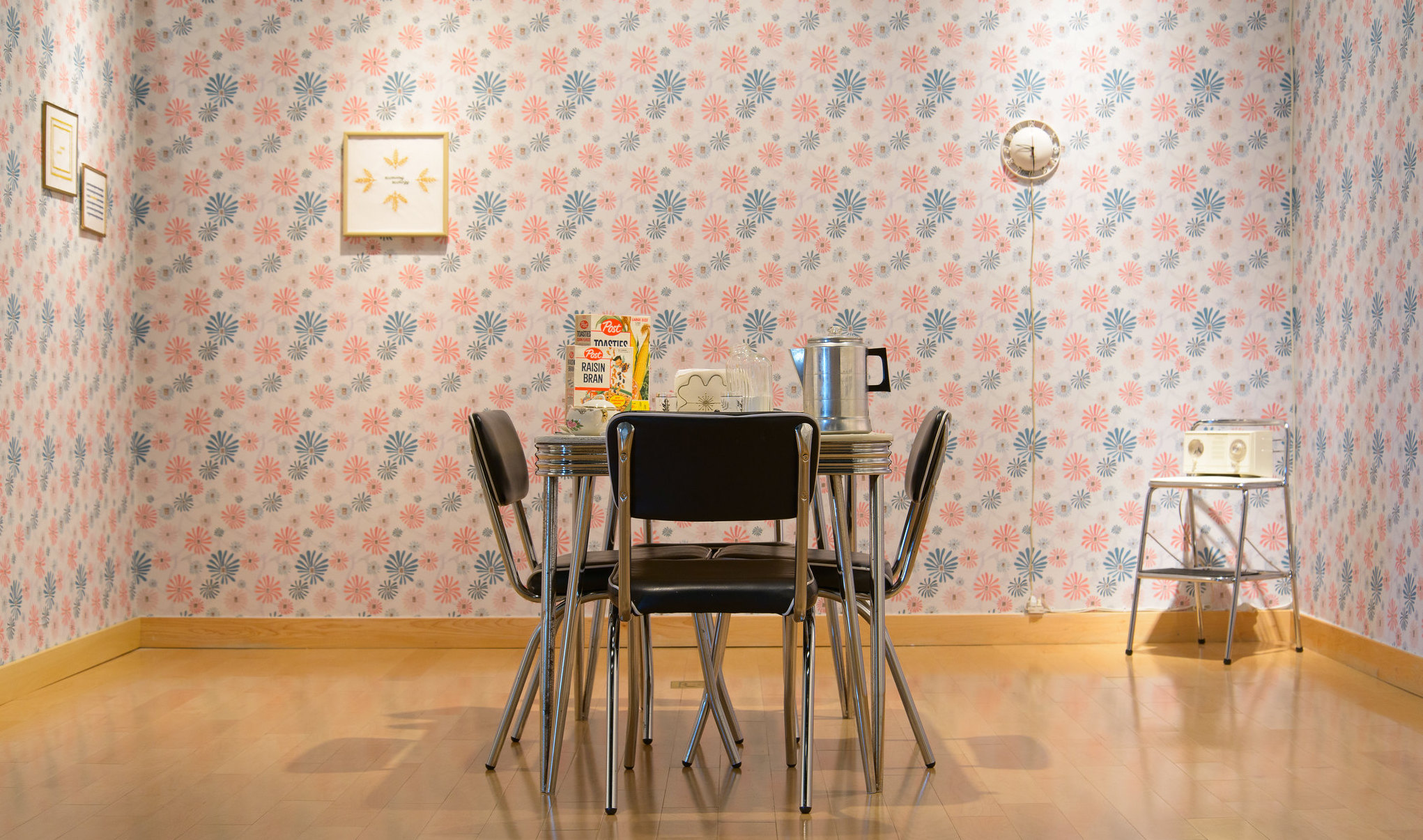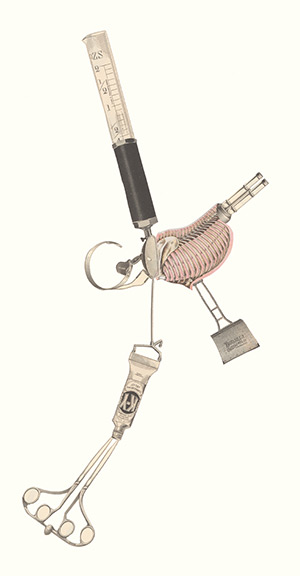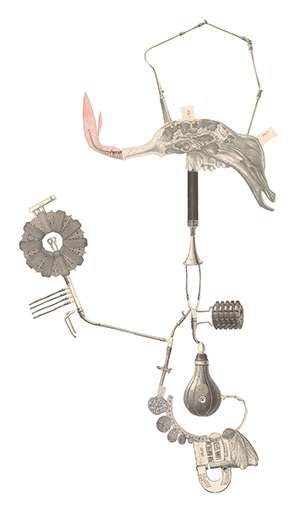Kirsten Stolle’s installations examine the influence of corporate agribusiness and biotech companies on the food supply. She asks her audience to consider the connection between corporate interests (read financial bottom-line) and public health (read woefully under-informed) in the choices they make about the food they choose to eat.
Using the 1950s as a post-atomic stage set with its inherent tensions between domestic contentment and the on-going threat of nuclear annihilation, Stolle explores the complex relationships between economy and ecology creating interactive environments for the viewer to contemplate where their food comes from, how it was grown, and how the choices big business make “behind the scenes” impact every-day choices about consumtion.
Kirsten Stolle received a BA in Visual Arts from Framingham State College, and completed studies at Richmond College (London, England) and Massachusetts College of Art (Boston, MA). A vegetarian, she currently lives in Western North Carolina. Stolle is the recent recipient of a grant from the Pollock-Krasner Foundation. Her exhibition at the Turchin Center for the Visual Arts is partially underwritten by this support of her research.
– Mary Anne Redding
Curator

Artist statement
“My work examines the influence of agribusiness and biotech companies on our food supply, and considers the connection between corporate interests and public health. Using appropriation, distortion, and redaction I explore the complex relationship between economy and ecology. Recently I have broadened my interest by exploring the impact of facial recognition technology on individual privacy and psychological health.
“I’m engaged in the intersection of art and science and the potential for art to bring new perspectives to contemporary scientific issues. With drawing as my primary medium, I use gouache, graphite, ink, and collage to create hybridized versions of seemingly familiar yet peculiar scenarios. I also have worked with text-based embroidery, site-responsive installations, and manipulated audio loops. Using reference materials such as vintage medical books, 20th century agricultural magazines, USDA promotional videos, and mid-century chemical company print advertisements, I strive to create elegant environments within the context of disturbing genetic realities.”
– Kirsten Stolle
On Genetically Commodified, one of the installations composing Intervention, Kirsten Stolle comments…
“Genetically Commodified is an ongoing multi-disciplinary project (drawing, installation, sound) that investigates the consequences of introducing GMOs into our food supply. Through recent political and media discussions, familiarity with serious issues affecting our industrial food chain is steadily increasing. Genetically Commodified explores these issues within an artistic framework, working across mediums to create an integrated environment where the audience can consider the influence of GMOs.”
Additional resources
- Flickr– Installation images
- Kirsten Stolle – Official website.
- Gallery Guide – On Issuu


